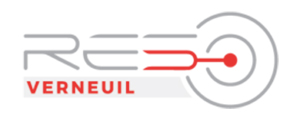VOLTAR
IMCAS World Congress 2020
IMCAS World Congress 2020
Programa
S017, S018
Clinical dermatology: hidradenitis suppurativa - Verneuil's disease
Sala: Room 141 - level 1
Data: quinta-feira 30 janeiro 2020 de 08:30 às 10:30
Formato: FOCUS SESSION > lectures covering a major topic of the congress
Data: quinta-feira 30 janeiro 2020 de 08:30 às 10:30
Formato: FOCUS SESSION > lectures covering a major topic of the congress
Apresentações desta sessão
| Horas | Palestrantes | Título da apresentação | Resumo | Número |
| 08:30 | Presentation of ResoVerneuil | 93047 | ||
| 08:35 | Acne conglobata: not really acne but a new sign of hidradenitis suppurativa? | Visualizar | 93049 | |
| 08:50 | French guidelines and updates | 93046 | ||
| 09:05 | Lasers and Verneuil's disease | Visualizar | 96358 | |
| 09:20 | Management of hidradenitis suppurativa: minor procedures with good results | 96362 | ||
| 09:35 | Surgical approach | 96364 | ||
| 09:50 | New perspectives in the treatment of hidradenitis suppurativa: chemical and nutritional approaches | Visualizar | 93048 | |
| 10:05 | The importance of hair removal in patient with hidradenitis suppurativa | Visualizar | 94374 | |
| 10:20 | Q&A | 93050 | ||













